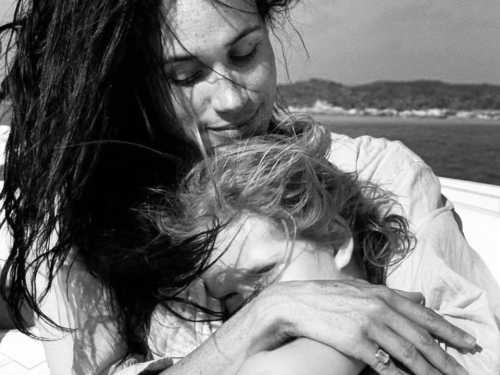
“Crime? What crime?” he suddenly cried out in some unexpected rage. “I killed a vile, pernicious louse, a little old money-lending crone who was of no use to anyone, to kill whom is worth forty sins forgiven, who sucked the life-sap from the poor—is that a crime? I’m not thinking of it, nor am I thinking of washing it away.”
These words of Rodion Raskolnikov, protagonist of Fyodor Dostoevsky’s Crime and Punishment, are hard to forget. Quick to excuse our own crimes, to hear justifications for wickedness in another man’s mouth makes us gag both with horror and familiarity. At such a distance, we can see with crystal clarity not only the crime, but also the profound self-deception that accompanies it.
Advertisement
Likewise when the New York Times writes of “the grim future an abortion ban would bring,” which, in the estimation of its primary source, would result in Americans “finding dead babies everywhere: in trash bags, in trash cans, in toilets, in fields.” Not only is the proposition itself horrific, but the very language should make the crime so obvious: “dead babies.” Go home, folks, the work of the pro-life movement has been accomplished. The left has finally admitted that a fetus is a baby and life does, in fact, begin at conception. Right?
Well, of course not. Indeed, perhaps to the chagrin of the organizations that have profited from capturing abortionists in such “gotcha” moments over the years, the debate has never been whether an unborn baby is actually a human life. It couldn’t be, despite the facetious language of “health care” or “reproductive rights” used by the left to describe infanticide, because the same radicals have always argued that in the case of rape or incest, an abortion is a mercy to the victim, saving her from raising her assaulter’s child. Of course it is a baby, the question is whether we can do away with it in a tidy, socially acceptable way. It is a mentality about the inconvenience of children that carries over to those outside the womb, too.
The question, then, is not when a fetus becomes a human life, but when hers becomes a life worth protecting with the same fervency as her mother’s—whether both lives have the same value. It is the same question Raskolnikov asks, or attempts to answer, when he murders the old pawnbroker and her sister, two old women who are not merely insignificant but perhaps even harmful to their society. Is it not just, he argues, for extraordinary men as himself to remove such obstacles to their higher goals? It is the same question that Nietzsche would ask a few decades later.
For abortionists, this murder is a mercy to both the child, who clearly isn’t wanted—at least, not at the time of conception—and the mother, who loses her autonomy through the act of carrying and raising him. What if the woman is a single mother, or the child’s father is abusive? What if he’s a rapist? What if she just couldn’t afford to offer her son a good life, or even a roof over his head? What if his very existence is bad for the environment? The child, the logic goes, is better off dead, and to deny his mother this choice is unjust.
Besides, killing him now is not so bad as it would be later—or so we are told. This is the Singerian logic that reigns in our cultural discourse, that human life, especially in the case of a baby whose self-consciousness has yet to develop, is really no different from the beasts of the field. The needs of utilitarianism dictate that such lives, which by logic include the elderly, the infirm, and the disabled, as well as the unborn, can be eliminated without guilt. In other words, it is not only OK but right and fitting to put them out of their misery—or the presumed possibility of future misery, in the case of the child in utero.
Advertisement
The Washington Post sketches us a good picture of how this logic works in the minds of average Americans, who are not reading Dostoevsky, Nietszche, or Peter Singer. The Post’s subject, 18-year-old Brooke Alexander from Texas, changes her mind about aborting her twin babies after hearing their heartbeats in an ultrasound at a pro-life pregnancy center. Alexander wonders, since her babies have heartbeats, if would aborting them would be murder. Rightly appalled at the prospect, she reflects, “Who’s to say what I would have done if the law wasn’t in effect? I don’t want to think about it.” And again, “It’s really scary thinking that I wouldn’t have them.” Still, the journalist brings Brooke to the conclusion that “losing them now, as fully formed human beings, would be different from losing them back then.”
Any mother could tell you that there is truth in these words, but it is not the truth the journalist thinks she has captured. It is a different thing to pull a trigger from a remote location than at point-blank range. A miscarriage at six weeks devastates in a different way than it does at 26 weeks, but it still devastates. These statements do not tell us about the relative morality of such deaths, but about our ability to stomach them. The less we see, the less we know, the easier it is to blind ourselves to the depth of the tragedy and carry on. The tragedy, meanwhile, remains.
The story doesn’t end there, of course. The majority of Crime and Punishment follows Raskolnikov as he wrestles with guilt and his anguish with himself for being guilty, which he sees as weakness, a failure to become a truly great man. “This alone he recognized as his crime: that he had not endured it, but had gone and confessed,” Dostoevsky writes in the epilogue. In the end, Raskolnikov cannot bear his own guilt.
How much more destructive is the murder of an unborn child, whose death while still in innocence could never be a matter of justice? How much greater is the guilt of the woman who makes a slaughterhouse of her womb?
Subscribe Today Get weekly emails in your inbox Email Address:
The old arguments about life beginning at conception are not passé because they are not true, but because they are running 100 yards behind the times, trying to catch up. The pro-life movement has been presented an opportunity, with the overturn of Roe, to reframe its message. If it would change culture—a daunting task, especially when so broadly framed—it must begin by speaking in plain terms of murder and its consequences, both for the guilty and for society as a whole.
When we do so, when we admit the crime and confess our guilt, we may, like Raskolnikov, find “instead of dialectics, there was life, and something completely different [has] to work itself out in [our] consciousness.”
Advertisement
Sourse: theamericanconservative.com






